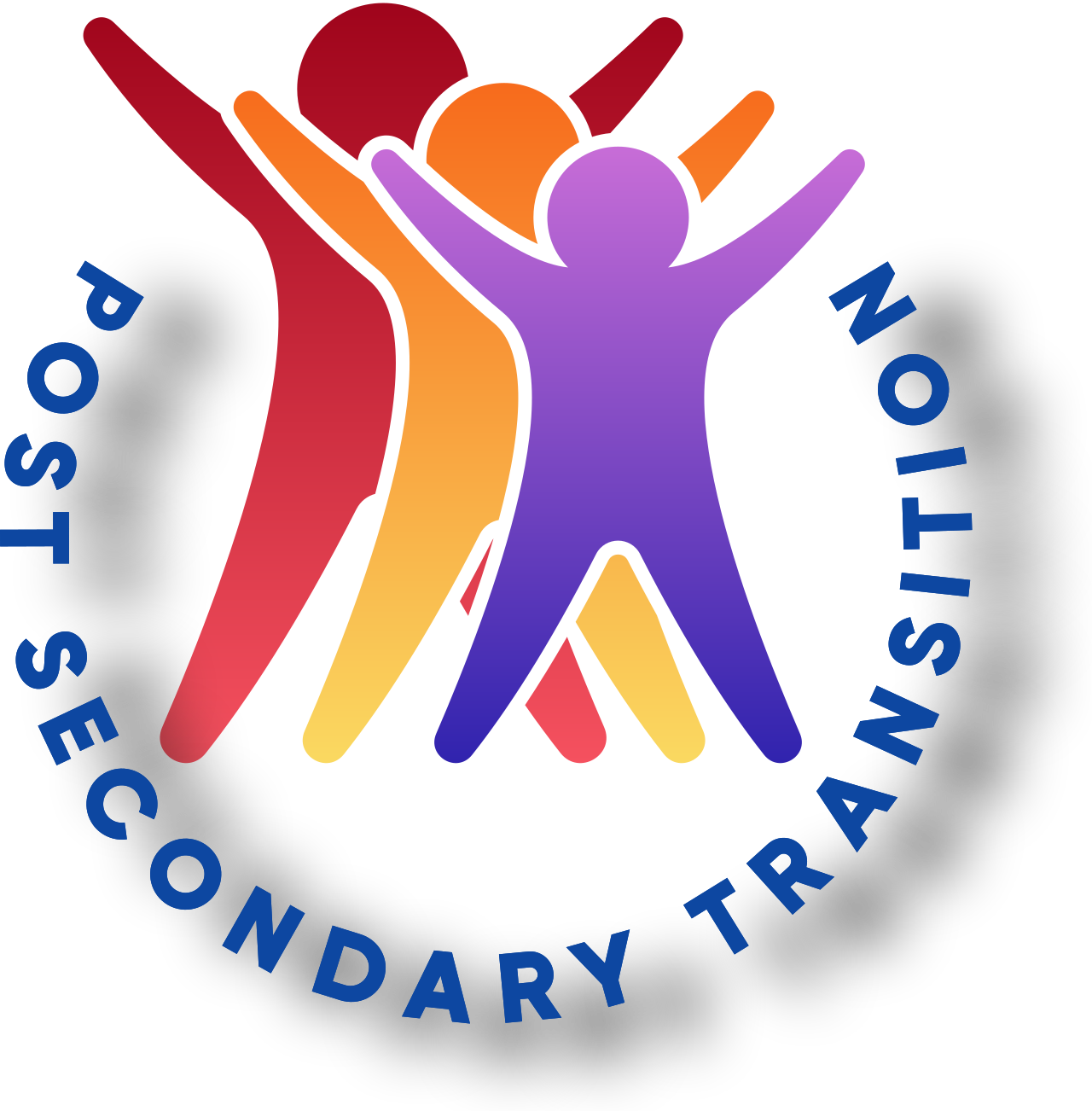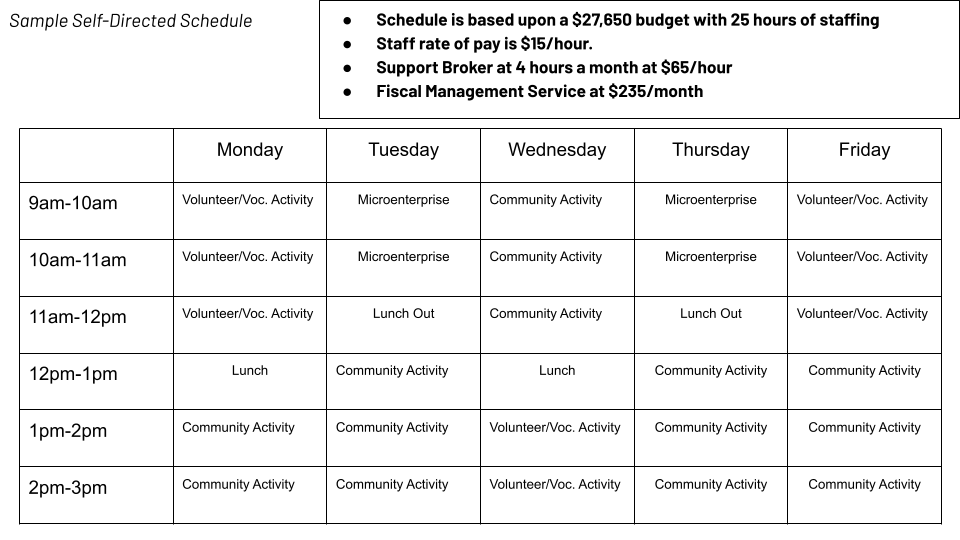
SELF DIRECTED SERVICES

What is...
Self-Directed is a service delivery model for individuals and their support circle who wish to exercise more choice, control, and authority over their supports. It allows greater control over services and staffing, the ability to be creative in use of funding, and the ability to completely individualize days. It promotes personal choice and control over the delivery of services and budget.
Staffing
The individual applying self-directed services is considered the legal employer, which is called Employer Authority. They assume employer authority responsibilities as the “employer of record." The parent & individual recruit, hire, train, and supervise staff** or provider they choose to deliver the services.
Job search engines have been helpful (SitterCity, Care, Indeed).
Many times familiar people can be hired (neighbor, family member) to assist with self-directed care. The rate to pay for staff is determined by parent & individual. Incentives can be given for healthcare benefits, insurance, or paid time off. In addition, this may offer something better than staff at a traditional day program receive (however, you cannot give bonuses).
**It can be challenging to keep staff. Parents report on average many staff remain for two years.
Budget/Funding
The individual and parent manage the budget with the support of the Coordinator of Community Service (CCS); this is called Budget Authority. The parent can be can be authorized by the individual to serve as designated representative in order to make informed decisions under the service delivery model. A Developmental Disabilities (DD) agency may try to give the individual an amount that is the minimum.
Matrix score (which looks at health and safety) will help determine amount for budget
After the first year, the individual & parent can go back and ask for more funding. Further, they can also go back to their DD agency know that services are not being fully met. Other streams of money may help supplement the day (e.g. Community First Choice). Keep in mind, you will need to justify for each activity and why it is needed. Further, the individual and parent need to determine the expenses for each month. Also need to determine the list of services approved in person-centered plan to pay for with a Developmental Disabilities (DD) agency’s funds.
Greater control over services and staffing
Naturally have a one on one with the individual
Ability to be creative in use of funding
Flexibility in the schedule
Individual is able to participate in activities they prefer and are interested in doing
Can be challenging to fill the day with activities
Does not provide those “typical” hours from a day program
Can be challenging to find and keep staff
A lot of work is front-loaded
Self-directed plans may take awhile to be approved
Example activities (& schedule) to fill someone’s day
Community Activity Examples
Therapeutic Horseback Riding
Classes at the library
Coffee at a local cafe
Grocery Shopping
Participate in informal social groups
Rec and Parks
Use of RTA Mobility
Micro-enterprise Examples
(supported self-employment arrangement
involving a person with a disability as the
developer and owner of their own small
business)
Scanning pictures or documents
Make cooking tutorial videos
Paint own art to sell
Volunteer/Vocational Activity Examples
Stocking food at a food bank
Picking up trash at a local park
Helping at animal shelter
Volunteer at church
Volunteer at a local garden or farm
Volunteer as a cat cuddler at local SPCA
Volunteer at health club folding towels



